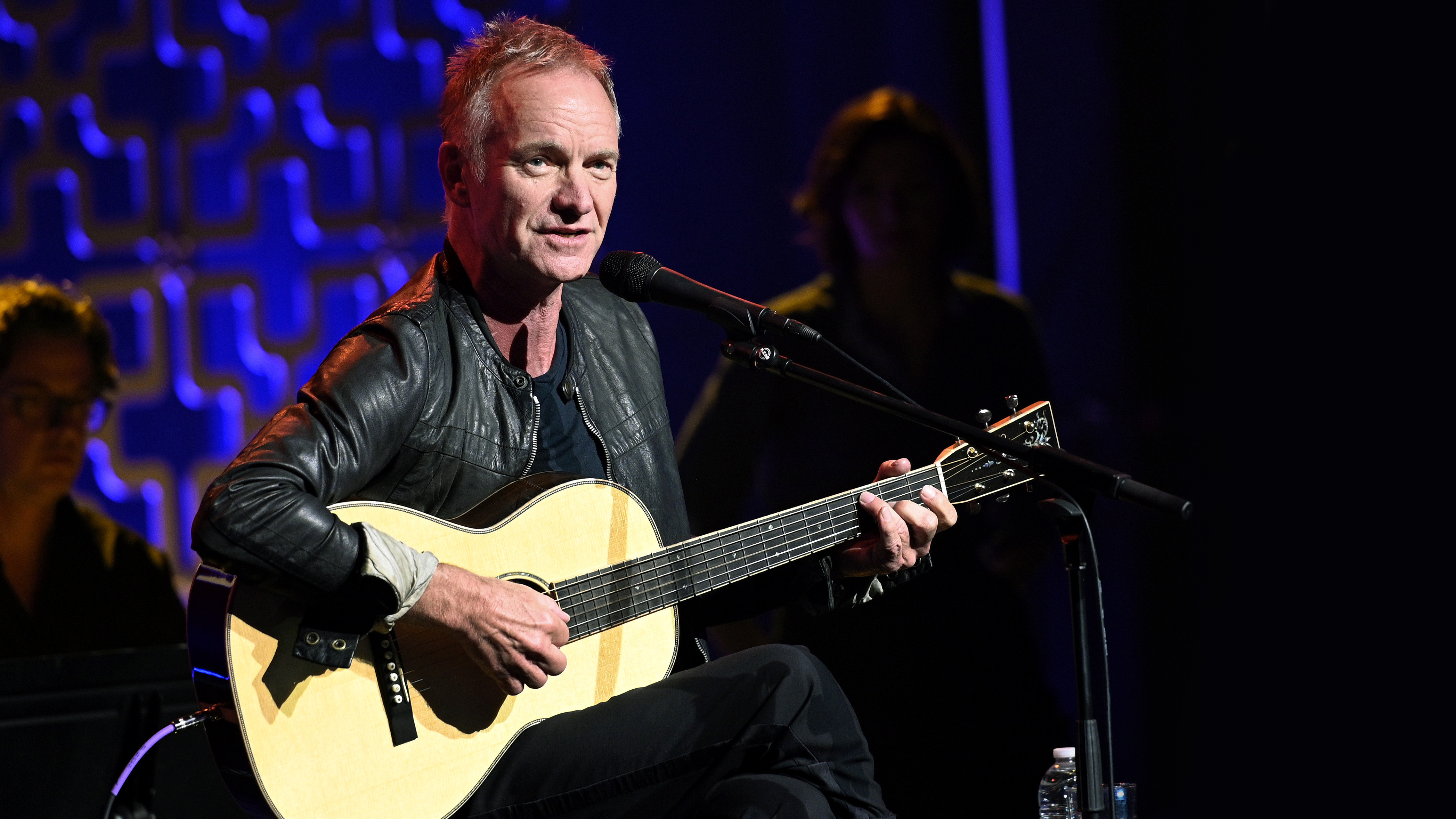
Songwriting has been in the news as a result of the US round Ed Sheeran's Thinking Out Loud / Marvin Gaye Let's Get It On legal case. Though Sheeran eventually won the case, the nature of ownership has been brought to the forefront. What constitutes ownership? A chord progression? Absolutely not, Sting tells Music Week for its new digital cover story.
"I was kind of interested to look at the case with Ed Sheeran in New York, and no one can claim a set of chords," the former Police man says. "No one can say, ‘Oh that's my set of chords.’ I think he said, ‘Look songs fit over each other.’ They do, so I think all of this stuff is nonsense and it's hard for a jury to understand, that's the problem.
"They can be bamboozled by a musicologist saying, ‘There are four notes here that are concurrent.’ No, no, it doesn't work that way. But all songs are related, and publishing is quite a recent thing. Classical composers would take a theme from another composer and say, ‘This is based on a theme by Brahms and it will be fine,’ but there was no publishing. So that was the truth, musicians steal from each other – we always have. I don't know who can claim to own a rhythm or a set of chords at all, it's virtually impossible.”
That's the least of songwriters' problems. Sting is five decades into a hugely successful career, and one of the most sampled artists of his generation, but he doesn't think the current generation of songwriters are being paid fairly.
“We are paid a fraction of what we should be," he notes. "At the same time, I'm very fortunate because of the economies of scale, I have a lot of songs out there, I can make a living but if you only have one song and you’re a young artist, that's difficult. In fact, virtually impossible. So it needs to be figured out between the artists, the record companies and the streaming services. At the moment, it is not equitable.”
With little progress in that area a whole new can of worms is opening with AI where artists aren't even in the equation. Well, Sting has some thoughts on that too – there's hope.
“The analogy for me is watching a movie with CGI," he muses. "I tend to be bored very quickly, because I know the actors can't see the monster. So I really feel the same way about AI being able to compose songs. Basically, it's an algorithm and it has a massive amount of information, but it would lack just that human spark, that imperfection if you like, that makes it unique to any artist, so I don't really fear it.
Want all the hottest music and gear news, reviews, deals, features and more, direct to your inbox? Sign up here.
"A lot of music could be created by AI quite efficiently," he adds. I think electronic dance music can still be very effective without involving humans at all. "But songwriting is very personal. It's soul work, and machines don't have souls. Not yet anyway…"
Check out the full interview over on Music Week. Sting’s My Songs world tour arrives in the UK on 24 June. The last remaining tickets are available here.

Rob is the Reviews Editor for GuitarWorld.com and MusicRadar guitars, so spends most of his waking hours (and beyond) thinking about and trying the latest gear while making sure our reviews team is giving you thorough and honest tests of it. He's worked for guitar mags and sites as a writer and editor for nearly 20 years but still winces at the thought of restringing anything with a Floyd Rose.